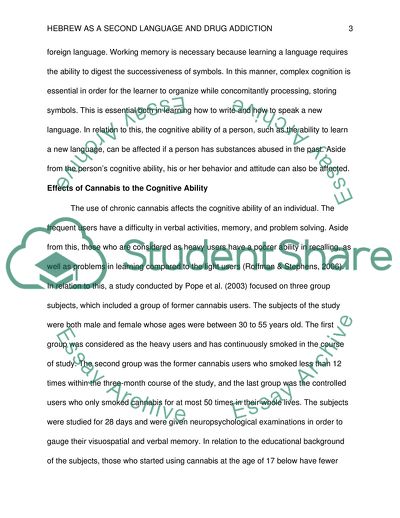Cite this document
(Hebrew as a Second Language and Drug Addiction Literature review Example | Topics and Well Written Essays - 1750 words, n.d.)
Hebrew as a Second Language and Drug Addiction Literature review Example | Topics and Well Written Essays - 1750 words. https://studentshare.org/education/1791274-hebrew-as-a-second-language-and-drug-addiction
Hebrew as a Second Language and Drug Addiction Literature review Example | Topics and Well Written Essays - 1750 words. https://studentshare.org/education/1791274-hebrew-as-a-second-language-and-drug-addiction
(Hebrew As a Second Language and Drug Addiction Literature Review Example | Topics and Well Written Essays - 1750 Words)
Hebrew As a Second Language and Drug Addiction Literature Review Example | Topics and Well Written Essays - 1750 Words. https://studentshare.org/education/1791274-hebrew-as-a-second-language-and-drug-addiction.
Hebrew As a Second Language and Drug Addiction Literature Review Example | Topics and Well Written Essays - 1750 Words. https://studentshare.org/education/1791274-hebrew-as-a-second-language-and-drug-addiction.
“Hebrew As a Second Language and Drug Addiction Literature Review Example | Topics and Well Written Essays - 1750 Words”. https://studentshare.org/education/1791274-hebrew-as-a-second-language-and-drug-addiction.


